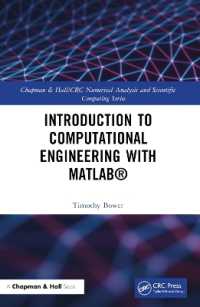Full Description
Written in a conversational and engaging manner, How We Think and Learn introduces readers to basic principles and research findings regarding human cognition and memory. It also highlights and debunks twenty-eight common misconceptions about thinking, learning, and the brain. Interspersed throughout the book are many short do-it-yourself exercises in which readers can observe key principles in their own thinking and learning. All ten chapters end with concrete recommendations - both for readers' own learning and for teaching and working effectively with others. As an accomplished researcher and writer, Jeanne Ellis Ormrod gives us a book that is not only highly informative but also a delight to read.
Contents
1. The general nature of human cognition and learning: probably not quite what you think; 2. The human brain: the hardware of our thinking and learning; 3. Cognition and learning as constructive processes: finding order in chaos; 4. Key components of the human memory system: an overly simplistic yet useful model; 5. In-depth cognitive processing: maximizing the 'long-term' in long-term memory; 6. Remembering, forgetting, and misremembering: why long-term memory isn't always dependable; 7. Metacognition: thinking about thinking; 8. Conceptual change: revising our understandings when revisions are called for; 9. Bringing other factors into the picture: how emotions, dispositions, and attributions affect thinking and learning; 10. Self-regulating our behavior: turning intentions into actions; Appendix; References; Index.







